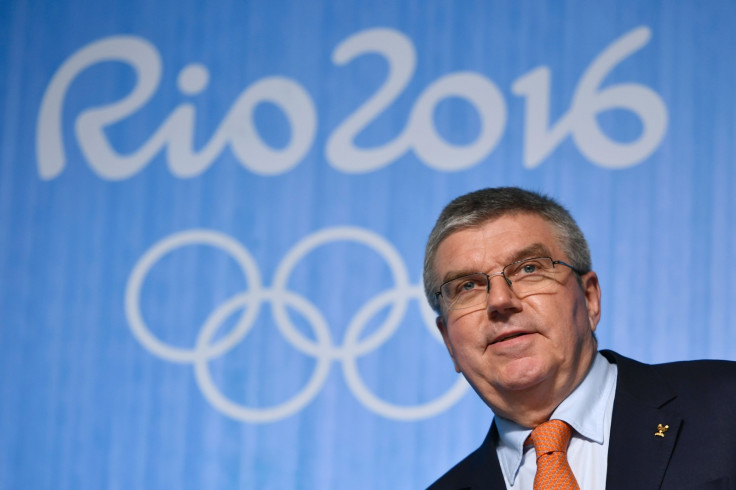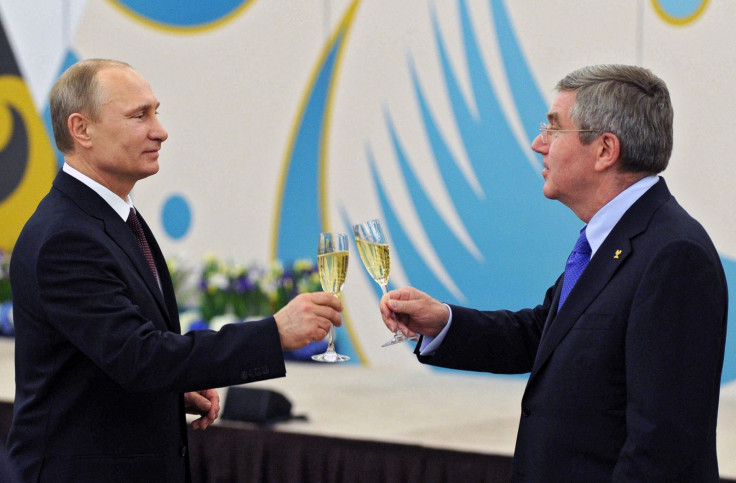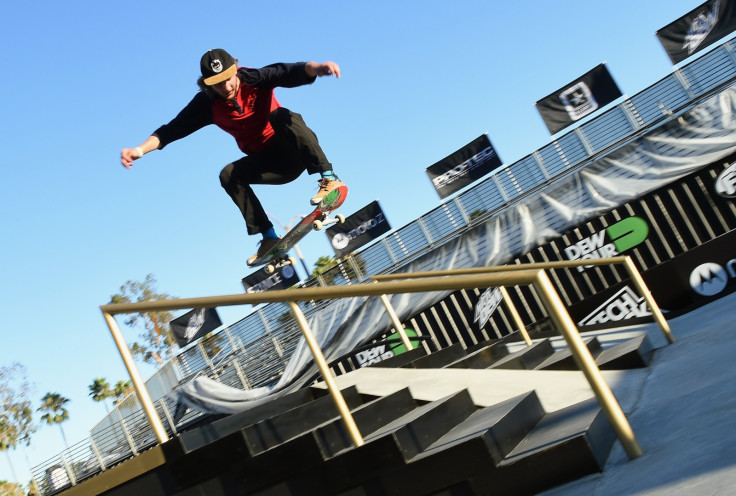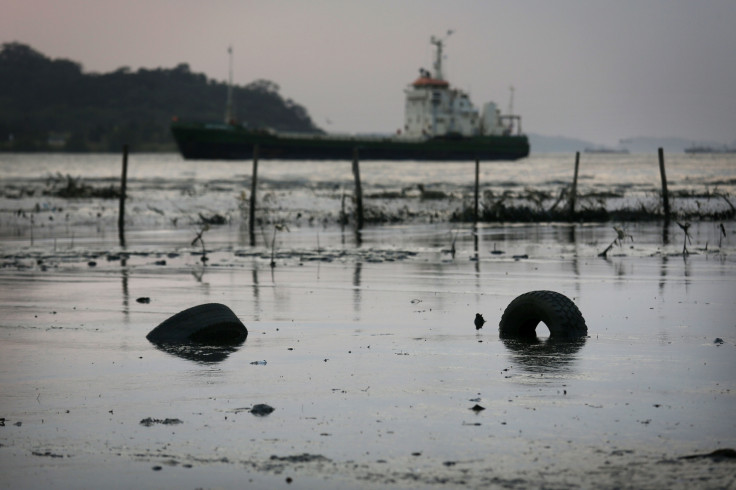Shameful IOC has disgraced the honour of the Olympic movement
Pierre de Coubertin will be rolling in his grave at the decline of the once great sporting society.
When Kylie Minogue performed at the closing ceremony of the 2014 Commonwealth Games in Glasgow, few would have guessed that her performance would be accompanied by any kind of poignancy. During a set lasting three quarters-of-an-hour of monotonous 90s pop, which had all the synth of the Pet Shop Boys coupled with the whiney tones of Rufus Wainwright, Minogue omitted her first release from the aforementioned decade ''Better The Devil You Know''.
International Olympic Committee president Thomas Bach, a former German lawyer, may be no singer but he is no stranger to the sentiment behind the song which failed to reach number one in any of the countries in which it was released.
In fact, the office which the 62-year-old runs has been playing that tune ever since he took to the helm in 2013 at one of the most famous sporting organisations on the planet.
The three values of the Olympic movement – friendship, respect and excellence - need little introduction and thanks to the pioneering Pierre de Coubertin, who resuscitated the Games and built the foundations they rest perilously on today. The multi-sport event is among the most revered purely down to the honour which it exudes. On Friday [5 August] Bach will declare the 31st Olympiad, his first as president, officially open but exactly to whom?
The IOC have successfully ensured that Rio 2016, which would be expected to project an image of colour and vitality, will be an event lacking identity and already overshadowed by a series of decisions which run roughshod over its standing within global sport. At the fulcrum of the collapse is Bach's cosy relationship with the key protagonists which draw a cloud over the Games; the World Anti-Doping Agency (Wada), Russia's President Vladimir Putin, the World Health Organisation and the successful Tokyo 2020 Olympic bid.

Modern-day sport will never be free of doping. The rewards remain too great, the technology too sophisticated and the punishments too insufficient to deter athletes from chancing their arm. Wada are off the pace, not least due to the paltry $15m they receive from the IOC – which represents half of their annual funding. When Olympic television revenue is increasing by 52% and American broadcasters NBC are paying $7.75bn for the next three Olympic Games, their commitment to doping can be truly quantified.
Though the anti-doping authorities cannot surely survive without the IOC surplus, it ensures the Olympic body do not answer to them. Their power and grip on world sport allows them to make up their own rules as go along without the fear of challenge. Pleas to ban the entire Russia Olympic team from Rio were ignored. But athletes – including the valuable whistle-blower Yulia Stepanova - who have previously served doping punishments have been blocked from competition. A clear contravening of the Wada code.
Putin was the first man to congratulate Bach upon him beating Puerto Rican Richard Carrion to become the ninth IOC president in Buenos Aries in September 2013, via telephone. It's likely he will have been in contact with Bach again after four years of state-sponsored doping was overlooked and the decision over whether Russian athletes could compete in Rio was cowardly left to the individual world governing bodies. More than two-thirds of the original entry list of 389 athletes will now compete this summer. Some justice.

Bach and Putin stood shoulder-to-shoulder during the most expensive Winter Olympic Games in history in Sochi – which hosted the doping practises the McLaren report exposed. From the outside looking in, it is clear what the Russia president is getting out of their relationship, but what about Bach? The world's largest country are interested in hosting the Summer Games in 2028.
The doping controversy has helped kick fears the Olympics could become a hospitable environment for further spreading of the Zika virus into the long grass. Calls for the event to be postponed or even cancelled have been disregarded by the IOC and the World Health Organisation (WHO) – but their motives have been questioned. An official relationship between the two was announced in 2010 and the United Nations health agency alleges there is a conflict of interests.
In another sign that the IOC believe all is rosy in their garden, attention has already turned to Tokyo 2020 where five events have been added to the schedule – with the final list to be confirmed in 2017. With golf and rugby sevens – the new additions for 2016 locked in – some established sports will miss out on being showcased to a lucrative Asian audience, while squash continues to be sidelined.

Bach claims the unanimous decision to allow baseball/softball, karate, skateboarding, surfing and sport climbing into the Olympics will help attract young viewers, spectators and competitors, but it's a hard sentiment to fathom. Some of the events selected have a thriving market in Asia yet across many parts of the world do not have the infrastructure to justify such a heady billing. Skateboarding is without a recognised world championships, for example. The sporting spectacle, which amid corruption and even doping gives fans something to believe in, is being diluted by the inclusion of events better suited to 'It's a Knockout' rather than a credible competition.
The Tokyo Olympic bid is beset by allegations of bribery, with the team behind the winning effort having admitted to making payments to close associates of the son for former IAAF president Lamine Diack – who is facing corruption charges in France. The IOC are yet to properly investigate the manner of the payment, while Japanese officials claim they were unaware the money, which totals 2.8m Singapore dollars, would find its way to Diack. The former head of world athletes resigned from his post in November 2015 after being suspended for involvement in covering up Russia drug cheats.
The reign of terror instigated by Bach means the only thing more polluted than the contaminated water which many athletes will be forced to compete in around Guanabara Bay, is the governing body which will benefit from the performances of the 10,500 athletes from the 207 competing teams.

Covering an Olympic Games is a duty which should be an exciting prospect for any journalist whether it be track, pool or pitch side, or staying up until the small hours and absorbing the television coverage which is beamed around the world. But the overriding emotion heading into 2016 is one of inconsolable disgust at the way a valued association is being dragged through the mud by the very same IOC bureaucrats, whose executives have been handed a trivial $900 in expenses each day in recession-stricken Rio, who revel in its rewards.
When London 2012 was labelled the best Olympic Games ever, it could easily have been described as British sensationalism. The concern now is that four years ago may represent the last time the event can be associated with even an ounce of credibility. Forgive the hyperbole but, until its integrity is restored, consider this the last contribution regarding a once glowing sporting fraction. The Olympics are dead, long live king Bach.
© Copyright IBTimes 2025. All rights reserved.





















